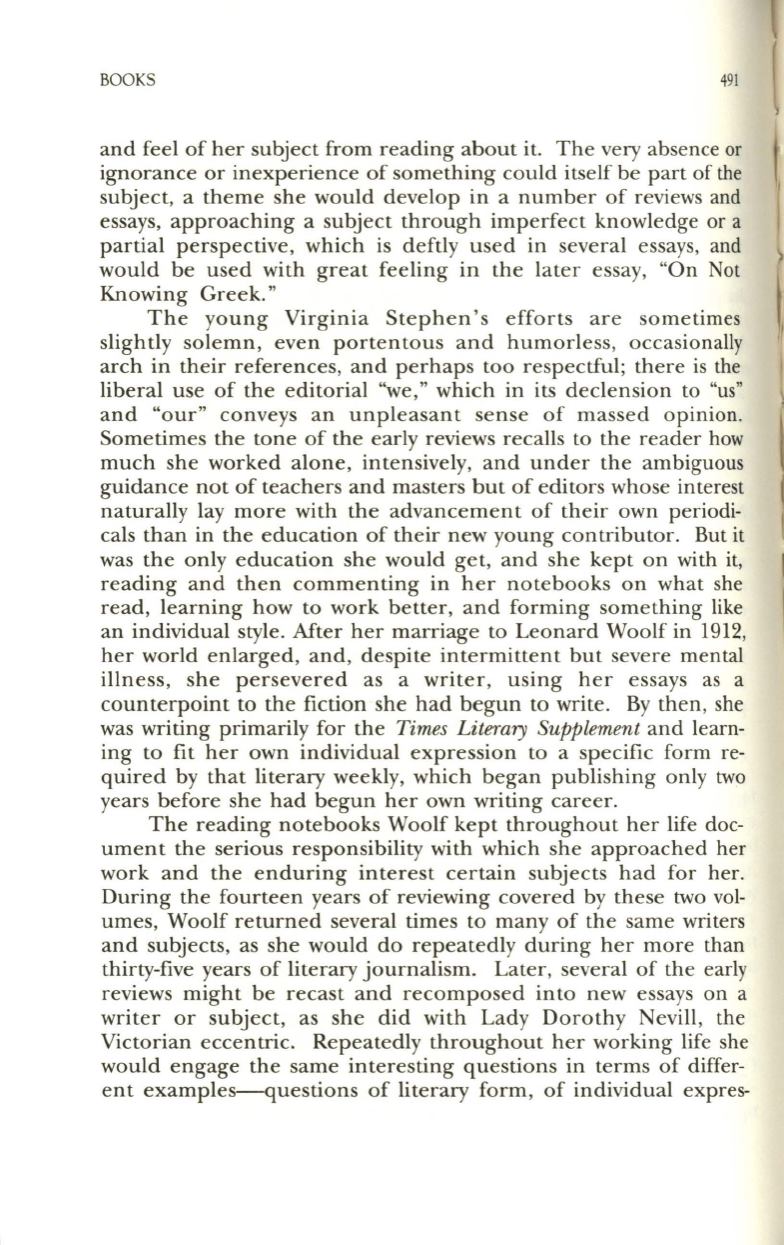
BOOKS
491
and feel of her subject from reading about it. The very absence or
ignorance or inexperience of something could itself be part of the
subject, a theme she would develop in a number of reviews and
essays, approaching a subject through imperfect knowledge or a
partial perspective, which is deftly used in several essays, and
would be used with great feeling in the later essay, "On Not
Knowing Greek."
The young Virginia Stephen's efforts are sometimes
slightly solemn, even portentous and humorless, occasionally
arch in their references, and perhaps too respectful; there is the
liberal use of the editorial "we," which in its declension to "us"
and "our" conveys an unpleasant sense of massed opinion.
Sometimes the tone of the early reviews recalls to the reader how
much she worked alone, intensively, and under the ambiguous
guidance not of teachers and masters but of editors whose interest
naturally lay more with the advancement of their own periodi–
cals than in the education of their new young contributor. But it
was the only education she would get, and she kept on with it,
reading and then commenting in her notebooks on what she
read, learning how to work better, and forming something like
an individual style. Mter her marriage to Leonard Woolf in 1912,
her world enlarged, and, despite intermittent but severe mental
illness, she persevered as a writer, using her essays as a
counterpoint to the fiction she had begun to write. By then, she
was writing primarily for the
Times Literary Supplement
and learn–
ing to fit her own individual expression to a specific form re–
quired by that literary weekly, which began publishing only two
years before she had begun her own writing career.
The reading notebooks Woolf kept throughout her life doc–
ument the serious responsibility with which she approached her
work and the enduring interest certain subjects had for her.
During the fourteen years of reviewing covered by these two vol–
umes, Woolf returned several times to many of the same writers
and subjects, as she would do repeatedly during her more than
thirty-five years of literary journalism. Later, several of the early
reviews might be recast and recomposed into new essays on a
writer or subject, as she did with Lady Dorothy Nevill, the
Victorian eccentric. Repeatedly throughout her working life she
would engage the same interesting questions in terms of differ–
ent examples-questions of literary form , of individual expres-


